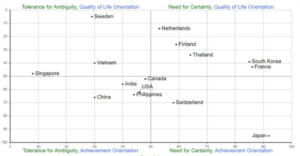A-call-for-many-peaces-the-power-of-hibakusha-stories-and-cultural-analysis-of-the-concept-of-peace/
hgd6 http://interpretive-and-critical-perspectives-which-additional-comprehension-of-diversity-management nterpretive-and-critical-perspectives-which-additional-comprehension-of-diversity-management
https://www.academia.edu/22402813/Mental_images_The_influence_of_culture_on_economic_policy

ufuygo’;;
Synopsis: Using the autobiographical narrative and participatory observation, this essay explores the symptoms of thinking enslaved by errors, illusions, and prejudices under and after communism.
Also, from a comprehensive reflexive perspective, the connections between geopolitical developments, the psychocultural profile of Romanian society and the phenomenon of captive thinking are explored.
Thus, at the meeting of the participatory observation with the comprehensive reflection, the reflections of the participant observer were born, an observer always aware of the precarious condition of the prisoner of captive thinking.
Keywords: culture, geopolitics, captive thinking, Romanian society, involved observer
Introduction
The communist regime collapsed in Romania, but our thinking seems to have sometimes remained captive to the myths and prejudices of the communist era. At the same time, maintained by large sections of the population, the new syndrome of captive thinking poisons communication networks with its subcultural skids. Of course, the reactions to the old and the new syndrome of captive thinking depend on each person's life experience, cultural background and family environment, but in this complicated puzzle, there are always factors, variables and, above all, imponderables which human judgment is not always able to discern and evaluate them. Perceived as a syndrome, captive thinking hides in us and among us, its symptoms betraying its presence in our limits and errors, in illusions and prejudices, gestures and preferences. More current than ever, "Captive Thinking", the book dedicated by Czesław Miłosz to the perversion of thinking under the dictatorship of the communist ideocracy deserves to be (re)read carefully even today.

0 Comments